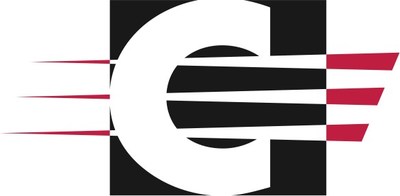CONSOL Energy Announces Direct Operating Greenhouse Gas Emission Reduction Targets, Seeks 50% Improvement in 5 Years, Net Zero by 2040
CONSOL Energy Inc. (NYSE: CEIX) has announced ambitious targets as part of its Forward Progress sustainability initiative, aiming to reduce direct operating greenhouse gas emissions by 50% by 2026, compared to 2019 levels. The company also aims for net-zero emissions by 2040. Key strategies include enhancing operational efficiency, expanding a methane destruction program, and developing innovative technologies. CEO Jimmy Brock emphasized the alignment of these goals with the company’s commitment to ESG principles and sustainable value creation.
- Set a target to reduce greenhouse gas emissions by 50% by 2026 compared to 2019 levels.
- Aims for net-zero direct operating emissions by 2040.
- Plans to expand methane destruction initiatives for emission reduction.
- Reinforces commitment to environmental, social, and governance (ESG) principles.
- Emissions reduction targets are limited to scope 1 and scope 2 emissions, not addressing scope 3 emissions.
- Forward-looking statements involve risks and uncertainties that could impact outcomes.
Insights
Analyzing...
CANONSBURG, Pa., Oct. 13, 2021 /PRNewswire/ -- CONSOL Energy Inc. ("CONSOL," NYSE: CEIX) today advanced its Forward Progress sustainability initiative with the announcement of targets to reduce its direct operating greenhouse gas emissions. The Company has set an interim goal to reduce its direct operating greenhouse gas emissions (referred to as scope 1 and scope 2 emissions) on an absolute basis by
"Since becoming an independent company in 2017, we've prioritized ESG and outlined goals to enhance employee safety, reduce environmental impacts, and create sustainable value," said CONSOL Energy President and Chief Executive Officer Jimmy Brock. "We continue to emphasize those ESG aspects of greatest impact to CONSOL, our stakeholders, and the environment. Developing direct operating greenhouse gas emission reduction targets puts our ESG approach into action and reflects our Board of Directors' and management team's dedication to continuous improvement."
CONSOL Energy's interim greenhouse gas emission reduction target is expected to be achieved through multiple initiatives, including energy management and operational efficiency efforts. Primary to achieving this goal is the expansion of the Company's methane destruction program, which has been piloted at the Pennsylvania Mining Complex since 2017. Our pilot program has proven that this endeavor will lead to meaningful direct operating emissions reductions. CONSOL's long-term ambition envisions multiple initiatives across our entire operating footprint, starting with full-scale deployment of methane abatement equipment. The 2040 target is also expected to be informed by the Company's strategic initiatives and partnerships, which aim to develop the technologies needed to achieve global aspirational greenhouse gas emission reduction goals. While the targets announced today are limited to direct operating greenhouse gas emissions, CONSOL continues to invest in research that could positively impact indirect (or scope 3) emissions in the future, if successful. This includes, for example, the Company's U.S. Department of Energy sponsored 21st Century Power Plant project and multiple projects seeking to develop advanced building materials from coal, which support a reduction in indirect emissions.
Dan Connell, CONSOL's Senior Vice President of Strategy, said, "We are excited to be among the first pure play coal companies to set greenhouse gas emission reduction targets. Today's announcement underscores our commitment to sustainability, complements our technology, growth, and diversification initiatives and exemplifies the alignment of CONSOL's strategy and ESG management approach."
The Company firmly believes our world-class asset base will continue to be relied upon for the foreseeable future to meet the world's electricity and infrastructure needs, supporting social objectives and catalyzing economic progress. Having been awarded Bettercoal Supplier status, we believe our commitment to deploy robust ESG operating practices will help ensure that we carry out this role responsibly and sustainably. CONSOL Energy remains intentionally focused on leveraging innovation while maintaining our stated financial priorities to create sustainable value for the Company and its stakeholders.
More information about CONSOL Energy's emissions reduction efforts and environmental, social and governance performance can be found at www.consolenergy.com/sustainability.
About CONSOL Energy Inc.
CONSOL Energy Inc. (NYSE: CEIX) is a Canonsburg, Pennsylvania-based producer and exporter of high-Btu bituminous thermal coal and metallurgical coal. It owns and operates some of the most productive longwall mining operations in the Northern Appalachian Basin and is developing a new metallurgical coal mine (the Itmann project) in the Central Appalachian Basin. CONSOL's flagship operation is the Pennsylvania Mining Complex, which has the capacity to produce approximately 28.5 million tons of coal per year and is comprised of 3 large-scale underground mines: Bailey, Enlow Fork, and Harvey. The company also owns and operates the CONSOL Marine Terminal, which is located in the port of Baltimore and has a throughput capacity of approximately 15 million tons per year. In addition to the ~658 million reserve tons associated with the Pennsylvania Mining Complex and the ~21 million reserve tons associated with the Itmann project, the company also controls approximately 1.5 billion tons of greenfield thermal and metallurgical coal reserves located in the major coal-producing basins of the eastern United States. Additional information regarding CONSOL Energy may be found at www.consolenergy.com.
Contacts: | |
Investor: | Nathan Tucker, at (724) 416-8336 |
Media: | Kurt Salvatori, at (724) 416-8319 |
Cautionary Statement Regarding Forward-Looking Statements
Certain statements in this press release are "forward-looking statements" within the meaning of the federal securities laws and speak only as of the date of this press release. While these forward-looking statements reflect CEIX expectations at the date of this press release, they are not guarantees or predictions of future performance or statements of fact. With the exception of historical matters, the matters discussed in this press release are forward-looking statements (as defined in Section 21E of the Securities Exchange Act of 1934, as amended) that involve risks and uncertainties that are unknown and, therefore, could cause actual results, performance, or achievements to differ materially from results, goals and achievements projected in or implied by such forward-looking statements. Accordingly, investors should not place undue reliance on forward-looking statements as a prediction of actual results. The forward-looking statements may include projections and estimates concerning the timing and success of specific short term and long term emission reduction targets, the role of specific technologies in reducing carbon emissions, and CEIX's role in contributing to global social and environmental goals. When we use the words "anticipate," "believe," "could," "continue," "estimate," "expect," "intend," "may," "plan," "predict," "project," "should," "will," or their negatives, or other similar expressions, the statements which include those words are usually forward-looking statements. All statements other than statements of historical facts included in this press release are forward-looking statements. When we describe strategy that involves risks or uncertainties, we are making forward-looking statements. Past performance cannot be relied on as a guide to future performance. We have based these forward-looking statements on our current expectations and assumptions about future events. While our management considers these expectations and assumptions to be reasonable, they are inherently subject to significant business, economic, competitive, regulatory and other risks, contingencies and uncertainties, most of which are difficult to predict and many of which are beyond our control. Specific risks, contingencies and uncertainties include but are not limited to changes in laws and regulations including international treaties and laws and regulations regarding greenhouse gas emissions and carbon costs actions, including changes with respect to tax policy, emissions credits, carbon offsets and carbon pricing; trade patterns and the development and enforcement of local, national and regional mandates; unforeseen technical or operational difficulties; the outcome of research efforts and future technology developments, including the ability to scale projects and technologies on a commercially competitive basis and our ability to take advantage of those innovations and developments; the effectiveness of our risk management strategies, including mitigating climate-related risks; our ability to identify and execute opportunities, and the economic viability of those opportunities, including those relating to methane destruction; the ability of our existing assets and expertise to support the growth of, and transition to, various energy opportunities, including through the positioning and optimization of our assets; our ability to efficiently reduce the carbon output (both on an absolute scale and relative intensity) of our operations (both Scope 1 and 2), including through the use of lower carbon power alternatives, management practices and system optimizations; the necessity to direct our focus on maintaining and enhancing our existing assets; the impacts of acquisitions or dispositions; changes in supply and demand and other market factors affecting future prices of coal; changes in the relative energy mix across activities and geographies; the actions of competitors; changes in regional and global economic growth rates and consumer preferences; the pace of regional and global recovery from the COVID-19 pandemic and actions taken by governments and consumers resulting from the pandemic; changes in population growth, economic development or migration patterns; and other factors discussed in this release and in Item 1A of CONSOL's Annual Report on Form 10-K for 2020 and subsequent Quarterly Reports on Forms 10-Q. The forward-looking statements in this press release speak only as of the date of this press release and CEIX disclaims any intention or obligation to update publicly or review any forward-looking statements, whether in response to new information, future events, or otherwise, except as required by applicable law.
In this statement, we refer to direct operating greenhouse gas emissions (referred to as scope 1 and scope 2 emissions). We note that this does not refer to our carbon emissions associated with the use of energy products we sell (referred to as scope 3 emissions). CEIX only controls its direct operating emissions. This statement is not intended to suggest that CEIX is addressing the emissions from use of its energy products in its net zero plan. Further, CEIX previously stated operating plans, outlooks, budget and pricing assumptions for the remainder of 2021 do not yet reflect our scope 1 and scope 2 emission targets. In the future, as we move toward our goal to reduce our direct operating greenhouse gas emissions, we expect these costs to be reflected in CEIX operating plans, outlook, budget and pricing assumptions.
![]() View original content to download multimedia:https://www.prnewswire.com/news-releases/consol-energy-announces-direct-operating-greenhouse-gas-emission-reduction-targets-seeks-50-improvement-in-5-years-net-zero-by-2040-301398821.html
View original content to download multimedia:https://www.prnewswire.com/news-releases/consol-energy-announces-direct-operating-greenhouse-gas-emission-reduction-targets-seeks-50-improvement-in-5-years-net-zero-by-2040-301398821.html
SOURCE CONSOL Energy Inc.








